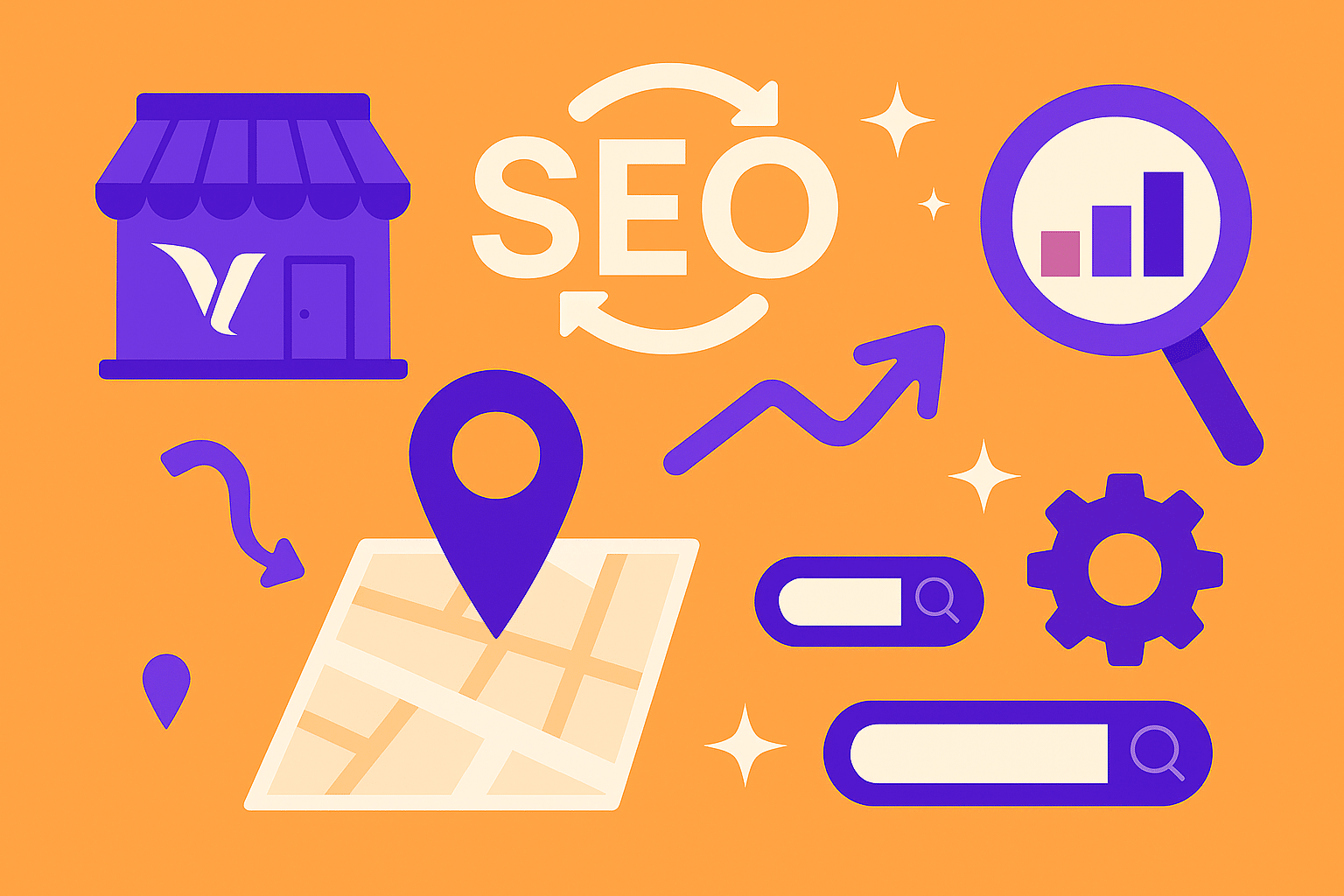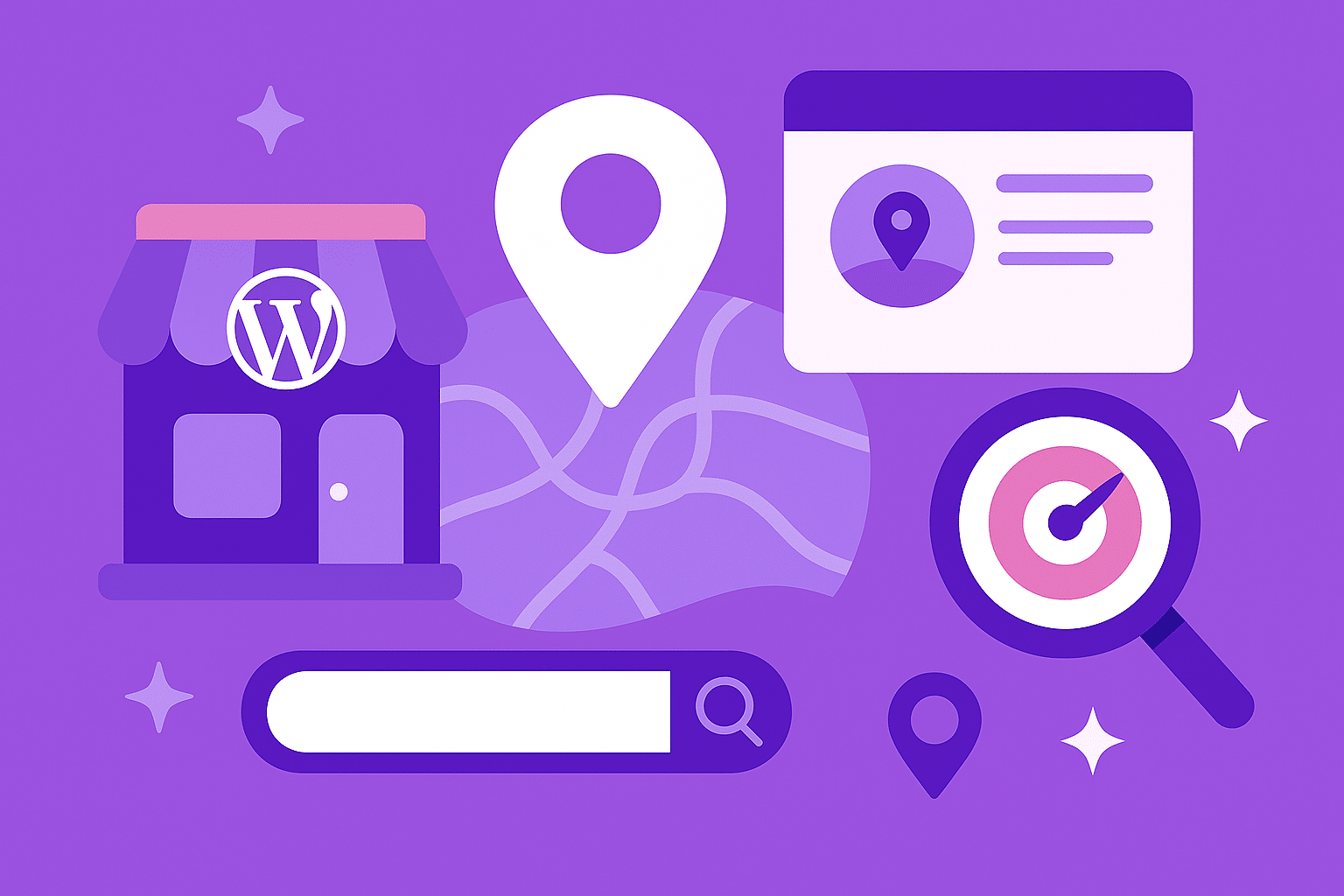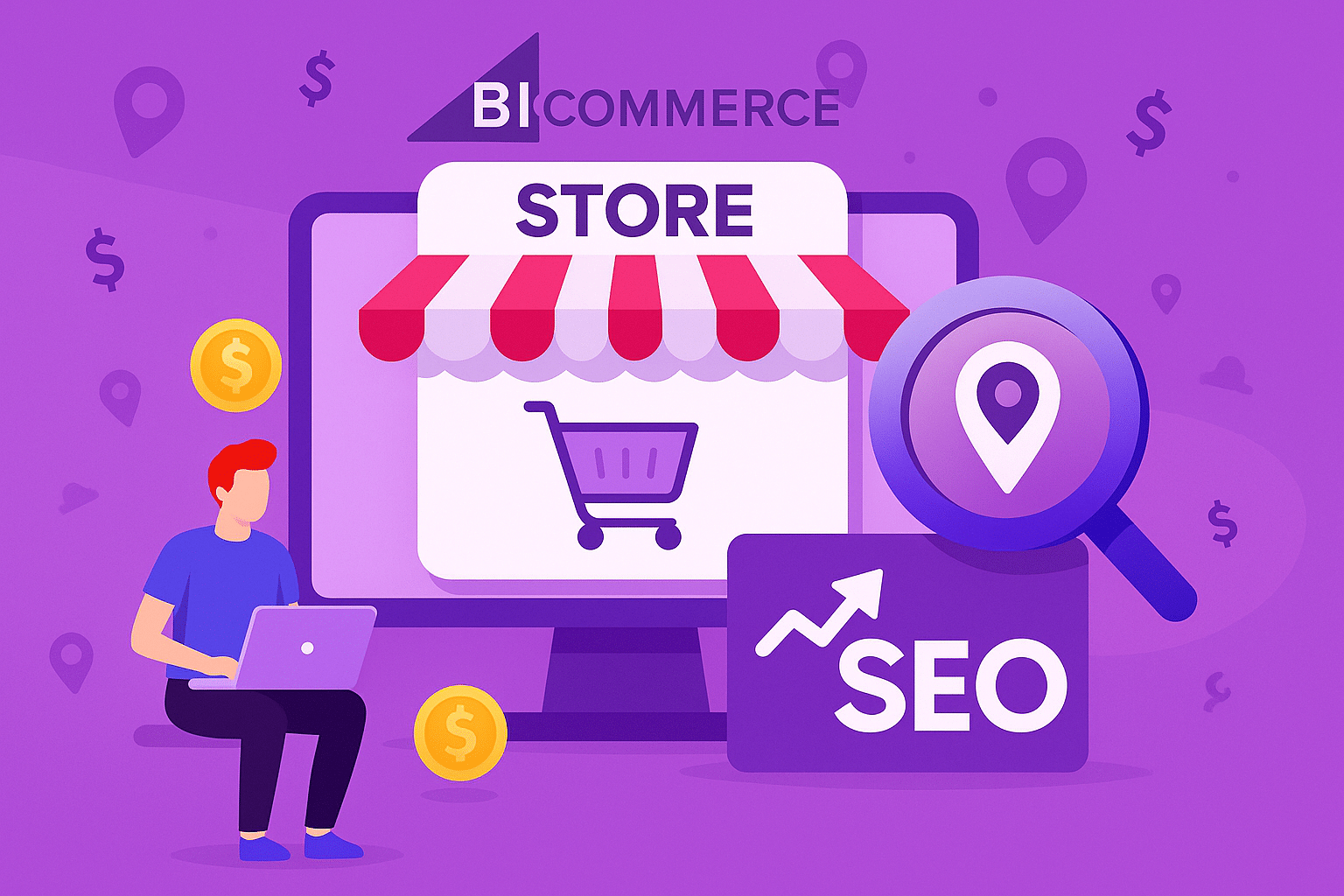Answer Engine Optimization, or AEO, is the next phase of search marketing where the goal shifts from ranking as a blue link to becoming the source that AI assistants cite, quote, or summarize. Instead of optimizing only for keywords and snippets, AEO focuses on making your pages unmistakably clear, verifiable, and easy to extract. That means tight information architecture, explicit answers near the top of the page, consistent entities and names, and structured data that clarifies products, organizations, authors, and FAQs. AI systems reward sources that are current, factual, and trustworthy, so visible dates, author bylines, primary references, and original research increase the odds that your brand becomes the one these models select.
Winning visibility in ChatGPT, Gemini, Perplexity, and Claude requires a playbook that layers new tactics on top of core SEO. Build question forward sections that map to real intents, publish comparison tables and checklists that are simple to cite, and keep statistics and methods up to date. Use schema to reinforce context, interlink related pages to form complete topic hubs, and add first party data or expert commentary so your content is not generic. Measure success by tracking citations and referrals from answer engines where available, logging brand mentions, and monitoring the queries that trigger AI summaries alongside traditional impressions, clicks, and conversions.
- Over 2 billion people now use AI-powered search regularly
- 75% correlation between traditional search rankings and AI citations
- Answer engines process 500+ billion queries annually across platforms
- Conversational search queries grew 300% in 2024
- Companies using AEO strategies see 40% higher brand mention rates
1Master Answer Engine Mechanics
Answer engines generate responses using two primary data sources that marketers must understand to optimize effectively.
How Answer Engines Source Information:
| Data Source | Description | Optimization Impact |
|---|---|---|
| Training Data | Historical web content used to train the AI model | Long-term SEO work pays dividends in AI training sets |
| Real-Time Web Data | Current information pulled from search engine indexes | Fresh content optimization and search rankings matter |
Answer Engine Data Sources by Platform:
| Answer Engine | Real-Time Data Source | Optimization Focus |
|---|---|---|
| ChatGPT Search | Bing search index | Optimize for Bing rankings alongside Google |
| Google Gemini | Google search index | Traditional Google SEO directly impacts visibility |
| Perplexity AI | Multiple sources, quality-filtered | Focus on authoritative, well-cited content |
| Microsoft Copilot | Bing search index | Bing SEO optimization strategies |
| Meta AI | Bing search index | Cross-platform content distribution |
Understanding Tools:
- Answer Engine Testing: Manually test queries across ChatGPT, Gemini, and Perplexity
- Search Console: Monitor both Google and Bing performance
- SEMrush or Ahrefs: Track rankings across multiple search engines
- BrightEdge or Conductor: Enterprise-level cross-engine monitoring
2Strengthen Traditional Search Foundation
The correlation between traditional search rankings and answer engine citations is undeniable. Websites ranking well in Google and Bing search results appear significantly more often in AI-generated responses.
Search Engine Correlation Data:
- ChatGPT Search: 75% correlation with Bing search results
- Google AI Overviews: 85% correlation with Google’s first page results
- Perplexity AI: 60% correlation with top-ranking authoritative sources
- General Pattern: Top 10 search results are 5x more likely to get AI citations
Essential SEO elements for answer engine success:
- Technical SEO: Fast loading, mobile-optimized, crawlable websites
- Content Authority: Comprehensive, expert-level content with unique insights
- User Experience: Clear navigation, readable formatting, helpful design
- Link Building: High-quality backlinks from relevant, authoritative sources
- Local SEO: Optimized local listings and location-based content
SEO Foundation Tools:
- Screaming Frog SEO Spider: Technical SEO auditing and crawl analysis
- Google Search Console & Bing Webmaster Tools: Monitor search performance
- Semrush or Ahrefs: Comprehensive SEO analysis and tracking
- GTmetrix or PageSpeed Insights: Performance optimization tools
- Yoast SEO or RankMath: WordPress SEO optimization plugins
3Target Conversational Search Patterns
Answer engines encourage natural, conversational queries that include context, preferences, and specific needs. This shift requires expanding beyond traditional keyword targeting to natural language optimization.
| Traditional Search Query | Answer Engine Query | Content Opportunity |
|---|---|---|
| “new england family vacation ideas fall” | “I’m looking for family-friendly vacation ideas for a fall trip somewhere in New England” | Season-specific family travel guides with age considerations |
| “gluten-free restaurants near me” | “What are some good restaurants with extensive gluten-free menus in my area?” | Detailed dietary accommodation reviews and recommendations |
| “CRM software small business” | “My 10-person marketing agency needs affordable CRM software with email integration” | Business size and industry-specific software comparisons |
Conversational keyword research strategies:
- Context Modifiers: Include business size, budget, experience level, timeline
- Situation-Specific Content: Address specific use cases and scenarios
- Question Formats: Target “what,” “how,” “why,” and “which” questions
- Follow-Up Questions: Answer likely follow-up queries within content
Conversational Research Tools:
- AnswerThePublic: Discover natural language questions people ask
- AlsoAsked.com: Extract related questions from search results
- ChatGPT or Gemini: Generate conversational variations of topics
- Customer Support Logs: Analyze real customer questions and language
- Reddit and Quora: Research authentic user questions and discussions
4Create Citation-Worthy Content
Answer engines prioritize content that demonstrates clear expertise, provides specific details, and offers unique value. Generic or AI-generated content rarely earns citations in competitive topics.
Content Elements AI Engines Value:
| Element | Example | Why It Works |
|---|---|---|
| Specific Data Points | “Based on analysis of 500+ customer reviews over 12 months” | Provides credible, quantifiable evidence |
| Expert Recommendations | “As a certified nutritionist, I recommend starting with 20g protein” | Demonstrates professional expertise and authority |
| Structured Information | Organized headings, bulleted lists, comparison tables | Easy for AI systems to parse and extract |
| First-Hand Experience | “After testing 15 project management tools with my team” | Provides unique insights unavailable elsewhere |
Content creation process for AEO success:
- Original Research: Conduct surveys, analyze data, interview experts
- Content Structure: Use clear headings, lists, tables for AI parsing
- Readability Optimization: Target 60-70 readability scores for broad accessibility
- Schema Markup: Implement structured data for better AI understanding
- Multi-format Content: Include text, images, videos, and interactive elements
Content Creation Tools:
- Surfer SEO or MarketMuse: Content optimization and topic modeling
- Grammarly or Hemingway: Writing clarity and readability improvement
- Canva or Adobe Creative Suite: Visual content creation and branding
- SurveyMonkey or Typeform: Original research and data collection
- Schema.org Markup Generator: Structured data implementation
5Develop Visual and Interactive Assets
Answer engines increasingly include multimedia content in responses. Visual assets like infographics, videos, and interactive tools help your content stand out and provide additional citation opportunities.
High-impact content assets for answer engines:
- Educational Videos: YouTube content gets cited 300% more frequently in AI responses
- Custom Graphics: Branded infographics and data visualizations
- Interactive Tools: Calculators, quizzes, and assessment tools
- Process Diagrams: Step-by-step visual instructions
- Comparison Charts: Product or service comparison visuals
Multimedia Creation Tools:
- Loom or Camtasia: Screen recording and video editing
- Figma or Canva: Graphic design and infographic creation
- H5P or Typeform: Interactive content and quiz creation
- TubeBuddy or VidIQ: YouTube SEO optimization
- Piktochart or Visme: Data visualization and chart creation
6Secure Third-Party Citations and Listings
Answer engines frequently cite third-party review sites, directories, and aggregators rather than direct brand sources. Getting featured on these platforms significantly increases your citation opportunities.
Strategic third-party platforms by industry:
- Local Businesses: Google Business Profile, Yelp, TripAdvisor, OpenTable
- B2B Software: G2, Capterra, Software Advice, TrustRadius
- E-commerce: Amazon, shopping comparison sites, review platforms
- Professional Services: Industry directories, Better Business Bureau, Angie’s List
- Healthcare: Healthgrades, Zocdoc, insurance directories
Third-party citation strategies:
- Claim and Optimize Listings: Complete profiles with accurate, detailed information
- Media Outreach: Pitch expert insights to journalists and industry publications
- Partnership Opportunities: Collaborate with complementary businesses for cross-citations
- Industry Event Participation: Speaking engagements and conference presentations
Citation Building Tools:
- HARO (Help a Reporter Out): Media opportunity discovery
- BrightLocal or Yext: Local listing management across platforms
- Prowly or Muck Rack: Media outreach and journalist relationship building
- G2 and Capterra: B2B software review management
- BuzzSumo: Industry publication and influencer discovery
7Implement Strategic Review Management
Answer engines heavily weight reputation signals when recommending businesses and services. A strategic review management program builds the credibility signals that AI systems rely on for recommendations.
Comprehensive review management approach:
- Platform Diversification: Maintain active profiles across relevant review platforms
- Review Acquisition Systems: Systematic processes for earning authentic reviews
- Response Management: Professional responses to all reviews, positive and negative
- Review Monitoring: Real-time alerts for new reviews across platforms
- Reputation Recovery: Strategic processes for addressing negative feedback
Review Management Tools:
- BirdEye or Podium: Multi-platform review management and automation
- ReviewTrackers: Review monitoring and response management
- Reputation.com: Enterprise reputation management solutions
- LocalClarity or Grade.us: Review acquisition and management
- Google My Business API: Automated review monitoring and responses
Answer Engine Performance Tracking
Tracking answer engine performance requires different metrics and methods than traditional SEO. Focus on citation frequency, mention context, and brand visibility across multiple AI platforms.
Manual Tracking Methods:
- Query Testing: Weekly searches across ChatGPT, Gemini, Perplexity, and Claude
- Citation Documentation: Record which content gets cited and in what context
- Competitor Analysis: Monitor competitor visibility and citation patterns
- Brand Mention Tracking: Search for brand names and related terms
Enterprise Tracking Solutions:
| Tool | Platform Coverage | Price Range | Best For |
|---|---|---|---|
| Rankscale | ChatGPT, Perplexity, Claude, Gemini | $20-200/month | Small to medium businesses |
| SE Ranking AI Overview Tracker | Google AI Overviews, featured snippets | $55-700/month | Google-focused optimization |
| BrightEdge | Comprehensive AI platform tracking | Custom pricing | Enterprise organizations |
| Advanced Web Ranking | Traditional + AI search tracking | $49-999/month | SEO agencies and consultants |
Performance Tracking Tools:
- Google Analytics 4: Track referral traffic from AI platforms
- Brand Monitoring Tools: Mention.com, Brand24 for cross-platform mentions
- Custom Spreadsheets: Manual tracking system for budget-conscious approach
- AI Overview Checkers: Free tools to test specific query performance
- Search Console Integration: Monitor traditional search performance as leading indicator
Implementation Timeline: Your 120-Day AEO Strategy
Days 1-30: Foundation Assessment and Setup
- Complete comprehensive SEO audit across Google and Bing
- Research conversational keywords using customer support insights
- Set up manual tracking systems for target queries across AI platforms
- Audit existing third-party listings and review profiles
- Identify top 10 pages for initial AEO optimization
Days 31-60: Content and Structure Optimization
- Restructure priority content with AI-friendly formatting
- Implement schema markup on high-traffic pages
- Create FAQ sections based on conversational query research
- Launch review acquisition campaigns across relevant platforms
- Begin creating multimedia assets to support text content
Days 61-90: Authority Building and Asset Development
- Publish original research or industry insights for citation opportunities
- Launch systematic media outreach and HARO participation
- Develop interactive tools and calculators for user engagement
- Optimize YouTube channel with educational content
- Strengthen E-E-A-T signals across all content
Days 91-120: Scaling and Advanced Optimization
- Analyze citation patterns and scale successful content types
- Implement enterprise tracking tools for automated monitoring
- Expand optimization to additional AI platforms and engines
- Develop ongoing content refresh and optimization workflows
- Build strategic partnerships for enhanced citation opportunities
Answer Engine Optimization represents the future of search marketing. As AI-powered search continues expanding across platforms and devices, companies investing in comprehensive AEO strategies now will maintain significant competitive advantages. The key to success lies in building genuine authority, creating exceptional content, and understanding how AI systems discover and cite information across the digital landscape.

 Marina Lippincott
Marina Lippincott





